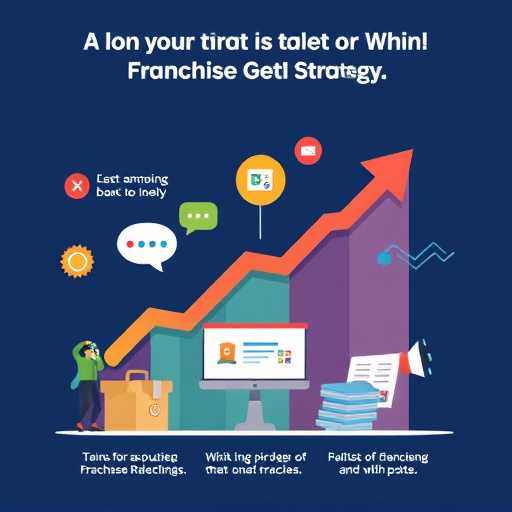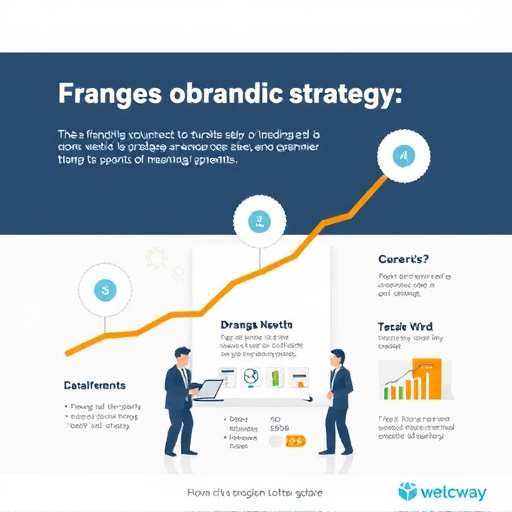In aggressive franchise marketing, Local SEO is vital for regional dominance. Businesses can boost visibility and attract local customers by optimizing online presence with location-specific keywords and accurate Google Business Profile (GBP) citations. Key strategies include claiming and enhancing GBP listings, maintaining consistent NAP data, creating engaging content, encouraging positive reviews, and monitoring local listings. Continuous optimization, leveraging SEO tools, and adapting based on insights drive success in competitive franchise marketing landscapes.
In today’s digital era, effective franchise marketing hinges on robust local SEO strategies. This article delves into the intricacies of optimizing search rankings for franchises, exploring key tactics such as leveraging online business listings and reviews, and providing actionable insights on measuring success. By implementing these proven franchise marketing strategies, businesses can enhance their visibility, attract local customers, and ultimately drive growth. Stay ahead of the curve with this comprehensive guide to local SEO excellence.
- Understanding Local SEO for Franchise Marketing
- Key Strategies to Enhance Local Search Rankings
- Utilizing Online Business Listings and Reviews
- Measuring Success: Tracking and Optimizing Your Local SEO Efforts
Understanding Local SEO for Franchise Marketing

In the competitive landscape of franchise marketing, Local SEO stands as a powerful strategy to enhance visibility and attract local customers. Understanding local search engine optimization (SEO) is crucial for any franchisee aiming to dominate their regional market. By optimizing online presence with location-specific keywords and accurate citations, franchises can ensure they appear when potential clients search for services or products within their area.
Local SEO strategies cater to the unique needs of franchises by helping them connect with customers in their immediate vicinity. This involves claiming and optimizing Google Business Profiles, ensuring consistent NAP (Name, Address, Phone number) citations across online directories, and creating engaging, location-tailored content that resonates with local audiences. By implementing these franchise marketing strategies, businesses can foster a strong sense of community engagement, driving foot traffic and fostering long-term relationships with customers in their area.
Key Strategies to Enhance Local Search Rankings

In the competitive landscape of franchise marketing, boosting local search rankings is paramount for visibility and attracting nearby customers. A well-crafted strategy involves several key tactics. First, claim and optimize your Google Business Profile (GBP) listing, ensuring accurate and compelling information about your franchise’s offerings, hours, and location. This is a powerful tool that directly impacts local search results and can drive more relevant traffic to your website and physical location.
Additionally, earning consistent online reviews from satisfied customers plays a significant role in enhancing local SEO. Positive reviews not only reflect well on your brand but also signal to search engines the popularity and reliability of your franchise. Encouraging happy clients to share their experiences through review platforms like Google, Yelp, or Facebook can significantly improve your local rankings, making your franchise more discoverable to potential customers searching for services in their area.
Utilizing Online Business Listings and Reviews

In today’s digital era, online business listings and reviews have become crucial franchise marketing strategies. By claiming and optimizing your business profiles on popular platforms like Google My Business, Yelp, and industry-specific directories, you enhance your visibility in local search results. This allows potential customers within a specific geographic area to easily discover and engage with your franchise, driving foot traffic and increasing conversions.
Reviews play a significant role in shaping consumer trust and decision-making. Encouraging satisfied customers to leave positive feedback not only bolsters your online reputation but also serves as social proof, influencing prospective clients’ perceptions of your brand. Regularly monitoring and responding to reviews demonstrate active engagement with your audience, fostering stronger relationships and encouraging continued loyalty towards your franchise.
Measuring Success: Tracking and Optimizing Your Local SEO Efforts

Measuring success is a vital part of any marketing strategy, and local SEO for franchise marketing is no exception. By tracking key metrics, you can optimize your efforts to maximize visibility and attract more customers. Start by monitoring your website’s traffic, focusing on organic search results. Analyze which pages are performing well and identify potential areas for improvement. Tools like Google Analytics provide insights into user behavior, helping you understand what content resonates with your target audience.
Regularly review your local listings across various platforms to ensure consistency in information. Track your rankings for relevant keywords using SEO tools, and stay updated on algorithm changes that might impact your visibility. Adapt your strategies based on these insights, refining your content, meta tags, and even considering expanding your offline marketing efforts. This continuous optimization is key to staying ahead in the competitive franchise marketing landscape.
Local SEO is a powerful tool for franchise businesses looking to attract customers in their immediate vicinity. By implementing effective strategies, such as optimizing online business listings and leveraging positive reviews, franchises can significantly boost their local search rankings. Regular tracking and optimization of these efforts are key to sustained success, ensuring that the franchise remains visible and relevant to its target audience. Adopting these Local SEO for Franchise Marketing strategies can drive more traffic, increase brand awareness, and ultimately contribute to the growth of individual franchise locations within a broader network.
